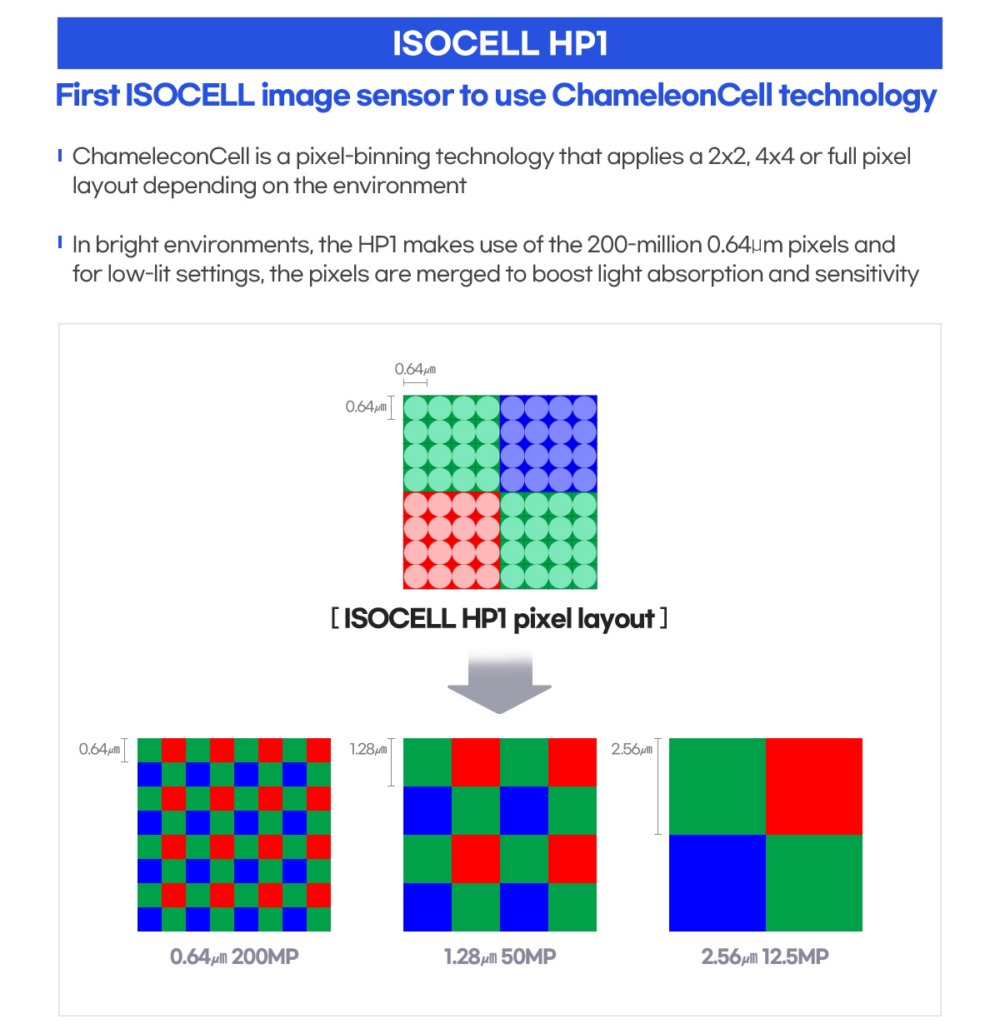Samsung's 200MP camera sensor sets a new record for phones — here's why it makes sense
Samsung breaks its own record with new 200MP phone camera sensor

Samsung's Galaxy S21 Ultra features an astounding 108MP camera sensor in the Samsung Isocell HMX, but progress marches on.
Samsung revealed today its new Isocell HP1, which boasts 200 megapixels, making it the first mobile camera sensor to reach that threshold. That may sound ludicrous, but there's more to it than just the raw megapixels (via Ars Technica).
- Phones with the best battery life in 2021
- ZTE Axon 30 5G review
- The best phone deals in September 2021
The key to the Isocell HP1, as it is with all of these high-megapixel mobile camera sensors, is pixel binning. This process takes a group of pixels from the sensor and blends them together in order to simulate larger pixels. This also results in more manageable file sizes as the binned images would be either 12.5MP or 25MP.
The Isocell HP1 is also the debut of Samsung's new "ChameleonCell" technology, which delivers adaptive pixel binning depending on the lighting. This brings us to another important image sensor spec: pixel size.

The 200-million pixels in the HP1 are 0.64μm, which is small by phone camera sensor standards. By comparison, the pixels in the 12MP primary sensor in the iPhone 12 Pro Max are 1.7μm. This is a critical advantage in low-light situations where the larger pixels are better able to absorb light and offer a brighter image. So the HP1 combines the pixels into either a 2x2 or 4x4 grid in lower light, resulting in the equivalent of a 1.28μm or 2.56μm pixel.
The Isocell HP1 should also be a strong sensor for videographers with support for 8K video at up to 30 frames per second without cropping or scaling. While the 200MP resolution is an attention-grabber, it's worth noting that Samsung's existing Isocell GN2 has a couple of advantages on this new sensor despite its lower 50MP resolution. The sensor itself is larger, and with pixel binning, it has bigger 2.8μm pixels. We would expect to see a phone adopt the new sensor sometime in early 2022 and we can't wait to see the results.
Sign up to receive The Snapshot, a free special dispatch from Laptop Mag, in your inbox.
Sean Riley has been covering tech professionally for over a decade now. Most of that time was as a freelancer covering varied topics including phones, wearables, tablets, smart home devices, laptops, AR, VR, mobile payments, fintech, and more. Sean is the resident mobile expert at Laptop Mag, specializing in phones and wearables, you'll find plenty of news, reviews, how-to, and opinion pieces on these subjects from him here. But Laptop Mag has also proven a perfect fit for that broad range of interests with reviews and news on the latest laptops, VR games, and computer accessories along with coverage on everything from NFTs to cybersecurity and more.

